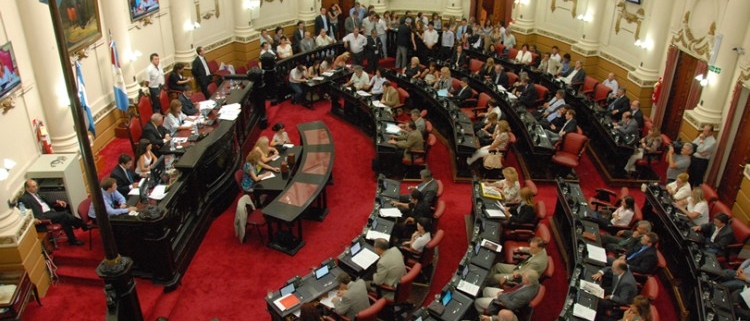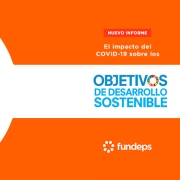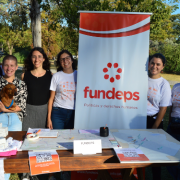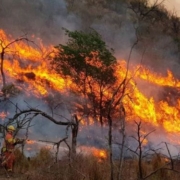Comments on Córdoba’s environmental policy bill
FUNDEPS was present at the meeting convened by the Joint Commission for the Legislature of Córdoba to discuss the environmental policy bill. Working document detailing observations and central criticisms of the bill.
In the context of the parliamentary handling of the environmental policy bill taken forward by the Executive Power, the Joint Commission for the Legislature of Córdoba Province convened Córdoba’s social environmental organisations on Friday 11 April of this year to participate in the debate and bring their viewpoints and deliberations closer together regarding the bill in question.
FUNDEPS was present at the meeting with a document prepared by the Legal Area of Human Rights, and put forward arguments and central criticisms of the environmental bill.
The Joint Commission in charge of processing the bill is made up of the commissions of Ecological Affairs, Institutional Affairs, Municipalities and Communities, Agriculture, Farming and Renewable Resources and Industry and Mining. More than 15 environmental and social organisations, which were very representative of the whole province, took part in the meeting. These included: Malvinas Assembly Fight for Life, Association of Friends of Río San Antonio (ADARSA), University Network of the Environment and Health-Network of Doctors of Fumigated Towns, Stop Fumigation Collective, Casa Córdoba Socio-environmental Assembly, Mapuche Nation Organisation and assemblies and residents from Candonga (Chavascate), Barrio San Antonio, Villa Giardino, Río Ceballos, Juárez Celman, San Marcos Sierras, Capilla del Monte, Río Cuarto and Punilla.
The rejection of the provincial environmental bill was absolute and unanimous. The bill in question is severely flawed from a technical-legal and legislative point of view, while at the same time it strictly violates the progressive, congruence and precautionary principles on environmental matters. As a result of this, and based on a technical-legal analysis we carried out in a working document, FUNDEPS is requesting a complete revision of the bill, or the development of a new regulatory body which will take into account and respect national environmental legislation and which will strengthen environmental protection at a provincial level.
In general terms, the bill does not respect the minimum standards established in National General Environment Law N° 25675, and does not fulfil its supplementary function which is to achieve an updated regulatory text on the environment. We therefore understand that it goes against constitutional environmental public order. Based on the corresponding analysis document, FUNDEPS argued that “the bill completely lacks operating rules, which means that it leaves everything subject to regulation and to what the enforcement authority decides at the time. Specifically, it distorts the principles concerning environmental material which the General Environment Law and other laws for minimum environmental standards stipulate in terms of operation and it does not deliver in its public order role as far as environmental regulations are concerned. Here there would be a kind of lack of complementarity and maximisation which it should have as a provincial law which aims to supplement the minimum environmental standards set out in national law”. (1)
The key principles in environmental policy such as the evaluation of environmental impact, citizen participation, land-use planning legislation and oversight, are lacking in this bill. The ambiguous wording leaves them vulnerable to arbitrary decisions by public and private operators and executors, and they are clearly insufficient as proposed basic standards and violate the minimum national environmental standards. For a detailed analysis of the article we recommend reading the analysis document developed by FUNDEPS.
_________________________________________________________________________________________________________________________________
(1) Transcript of the joint meeting of the Commission of Ecological Affairs, Institutional Affairs, Municipalities and Communities, Agriculture, Farming and Renewable Resources, and Industry and Mining. Córdoba, 11 April 2014.
Translated by: Lucy Driver







